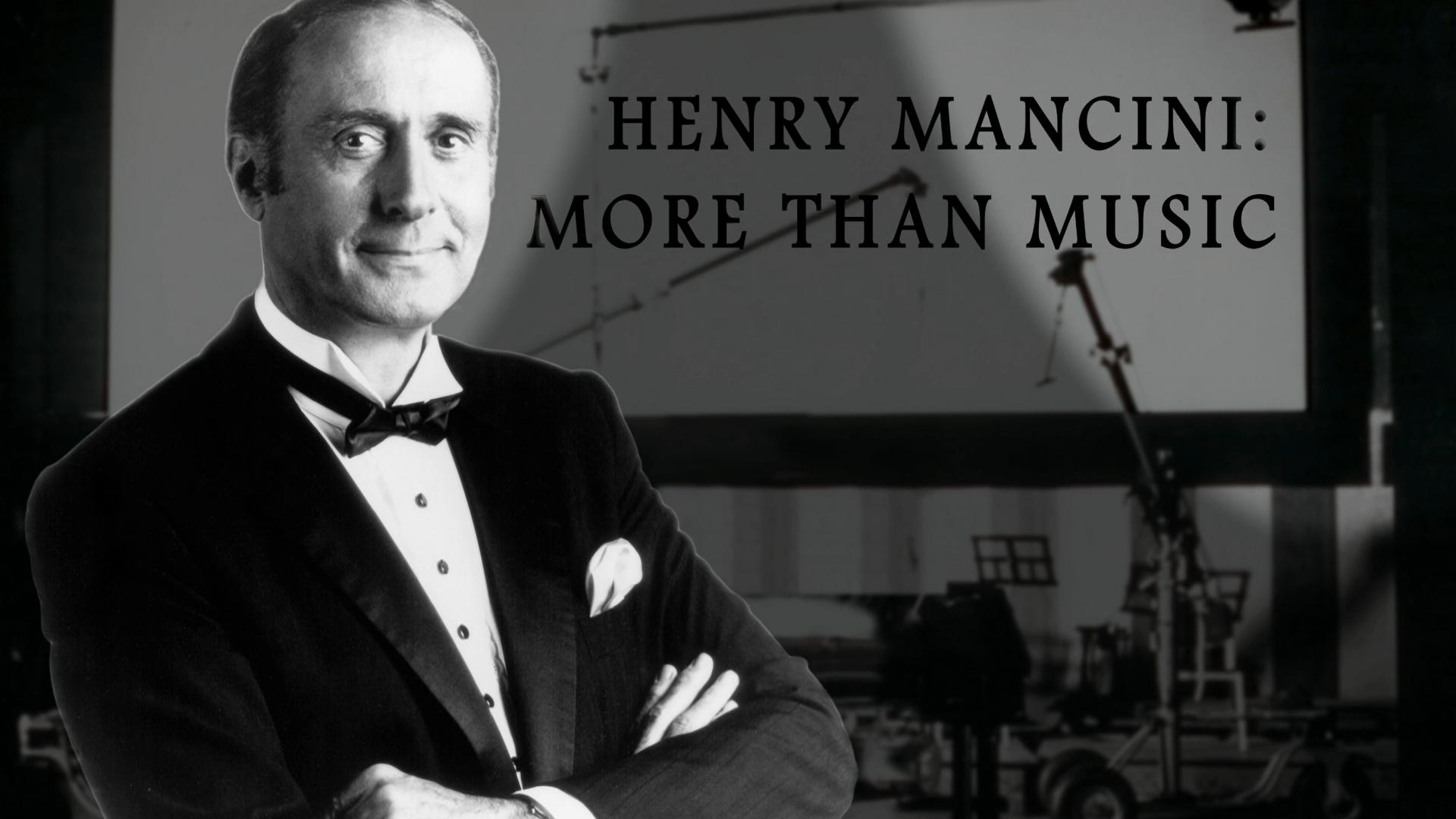
When it comes to music legends, there is one name that stands out: Henry Mancini. With a career spanning over four decades, Mancini was not only a talented composer and conductor but also a prolific arranger and pianist. He left an indelible mark on the world of music with his iconic soundtracks and unforgettable melodies.
In this article, we will explore 18 fascinating facts about Henry Mancini, delving into both his personal and professional life. From his early beginnings in Cleveland, Ohio, to his numerous collaborations with renowned filmmakers, Mancini’s journey was filled with triumphs and accolades. Whether you are a die-hard Mancini fan or simply curious about the man behind the music, these facts will provide a deeper insight into the remarkable career of this musical genius.
Key Takeaways:
- Henry Mancini, a legendary composer, won four Academy Awards and created iconic music for films and TV shows, leaving a lasting impact on the world of entertainment.
- Mancini’s versatile and emotive music continues to inspire and influence musicians worldwide, evoking nostalgia and capturing the essence of storytelling through captivating melodies.
Mancini composed the iconic Pink Panther theme song.
Henry Mancini is renowned for his composition of the catchy and memorable theme song for the Pink Panther film series. The jazzy tune became an instant hit and solidified Mancini’s reputation as a talented composer.
He won four Academy Awards.
Throughout his illustrious career, Henry Mancini received a total of four Academy Awards. His awards include Best Original Song for “Moon River” from Breakfast at Tiffany’s and Best Original Score for The Days of Wine and Roses and Victor/Victoria. Mancini’s ability to create captivating melodies and emotive scores made him a celebrated figure in the world of film music.
Mancini collaborated with renowned director Blake Edwards.
Henry Mancini’s fruitful collaboration with director Blake Edwards resulted in numerous successful film scores. The duo worked together on films like Breakfast at Tiffany’s, The Pink Panther series, and Days of Wine and Roses. Their creative partnership produced some of the most memorable and recognizable film music in history.
He was known for his expertise in combining different musical genres.
Mancini was a master at blending various musical styles, seamlessly incorporating elements of jazz, classical, and pop into his compositions. This unique ability allowed him to create music that appealed to a wide range of audiences and contributed to his enduring popularity.
Mancini composed music for over 90 films.
Throughout his career, Henry Mancini composed music for an impressive number of films, leaving an indelible mark on the world of cinema. His vast body of work includes beloved scores for movies such as Charade, Hatari!, and The Great Race.
He received 72 Grammy nominations.
Henry Mancini’s musical talent was widely recognized, earning him a staggering 72 Grammy nominations throughout his career. He won a total of 20 Grammy Awards, including Album of the Year for The Music from Peter Gunn.
Mancini’s music set the mood for classic television shows.
In addition to his work in film, Henry Mancini composed music for several iconic television series. He crafted memorable theme songs for shows like Peter Gunn, The Pink Panther Show, and Remington Steele, enhancing the viewing experience and becoming ingrained in popular culture.
He worked with renowned performers like Frank Sinatra and Audrey Hepburn.
Henry Mancini had the opportunity to collaborate with some of the biggest stars of his time. He worked closely with Frank Sinatra, arranging and conducting music for albums such as “Sinatra and Strings” and “My Kind of Broadway.” Mancini also composed the unforgettable score for Audrey Hepburn’s classic film, Breakfast at Tiffany’s.
Mancini’s score for “Romeo and Juliet” earned him critical acclaim.
Henry Mancini’s evocative score for Franco Zeffirelli’s film adaptation of “Romeo and Juliet” received widespread critical acclaim. The soundtrack perfectly captured the passion and tragedy of Shakespeare’s timeless love story, earning Mancini another well-deserved Academy Award nomination.
He was inducted into the Songwriters Hall of Fame.
In recognition of his immense contributions to the world of music, Henry Mancini was posthumously inducted into the Songwriters Hall of Fame in This prestigious honor solidified his legacy as one of the most influential and talented composers of his generation.
Mancini composed the music for the iconic “Baby Elephant Walk.”
One of Henry Mancini’s most recognizable compositions is the lively and whimsical tune “Baby Elephant Walk.” Originally written for the film “Hatari!,” this playful melody has become synonymous with fun and adventure, echoing Mancini’s ability to inject charm and personality into his music.
He received a star on the Hollywood Walk of Fame.
To honor his extraordinary contributions to the world of entertainment, Henry Mancini was awarded a star on the Hollywood Walk of Fame. This prestigious recognition symbolizes his lasting impact on the film and music industries.
Mancini’s music continues to be celebrated and performed worldwide.
Even decades after his passing, Henry Mancini’s music remains beloved and celebrated. His timeless compositions are frequently performed by orchestras and ensembles around the world, ensuring that his musical legacy lives on for future generations to enjoy.
He was a lifelong learner, studying at the Juilliard School.
Henry Mancini’s dedication to his craft led him to study at the prestigious Juilliard School in New York City. The knowledge and skills he acquired during his time there undoubtedly contributed to his musical prowess and artistic growth.
Mancini created innovative arrangements for television commercials.
In addition to his work in film and television, Henry Mancini also made significant contributions to the world of advertising. He revolutionized the use of music in television commercials, crafting memorable arrangements that added a touch of elegance and sophistication to various product campaigns.
His music influenced a generation of composers and musicians.
Henry Mancini’s innovative approach to composing and arranging music had a profound impact on future generations of musicians and composers. His ability to blend different genres and create captivating melodies continues to inspire and influence artists across various musical genres.
He was admired for his versatility as a composer.
One of the reasons Henry Mancini’s music resonates with audiences of all ages is his remarkable versatility as a composer. Whether it was writing a romantic ballad, a jazzy theme, or an adventurous score, Mancini consistently showcased his ability to adapt to different styles and genres with ease.
Mancini’s music evokes a sense of nostalgia and emotion.
One of the defining characteristics of Henry Mancini’s music is its ability to evoke deep emotions and transport listeners to different places and times. From the melancholic beauty of “Moon River” to the playful energy of the Pink Panther theme, his compositions have the power to elicit a range of emotions, leaving a lasting impact on all who hear them.
In conclusion, Henry Mancini’s contributions to the world of music and film are undeniable. His ability to create unforgettable melodies and capture the essence of storytelling through music solidified his place as one of the greatest composers of the 20th century. The 18 facts mentioned above offer a glimpse into the life and career of this remarkable artist, whose music continues to inspire and captivate audiences around the world.
Conclusion
In conclusion, Henry Mancini was a legendary composer and conductor who left an indelible mark on the world of music. With his unique style and innovative approach, he revolutionized the sound of film and television scores. Through his extensive body of work, Mancini won numerous accolades and created some of the most iconic and memorable compositions in cinematic history.From his iconic theme for “The Pink Panther” to his haunting melodies for “Breakfast at Tiffany’s,” Mancini’s music continues to captivate audiences to this day. His ability to evoke emotion and create musical narratives set him apart as a true master of his craft.Not only a composer, Henry Mancini was also a talented arranger and conductor, working with some of the biggest names in the industry. His collaborative spirit and ability to bring out the best in other musicians added to his lasting impact.Henry Mancini’s legacy lives on through his timeless music, which continues to inspire and move audiences across generations. His contributions to the world of music will always be remembered and celebrated.
FAQs
1. What are some of Henry Mancini’s most famous compositions?
Henry Mancini is best known for his iconic compositions such as “The Pink Panther Theme,” “Moon River” from “Breakfast at Tiffany’s,” and “Baby Elephant Walk” from “Hatari!”
2. Did Henry Mancini compose music only for films?
While Mancini is most famous for his film scores, he also composed music for television shows, including the popular theme for “Peter Gunn.” He released various albums that showcased his versatility as a composer.
3. How many awards did Henry Mancini win during his career?
Mancini won four Academy Awards, a Golden Globe, and twenty Grammy Awards throughout his illustrious career. His contributions to the field of music were widely recognized and celebrated.
4. Did Henry Mancini collaborate with other artists?
Yes, Henry Mancini frequently collaborated with other artists, both as an arranger and conductor. He worked closely with notable musicians such as Frank Sinatra, Audrey Hepburn, and Johnny Mathis, among others.
5. What is Henry Mancini’s influence on the music industry?
Henry Mancini’s innovative approach to composing film and television scores greatly influenced the music industry. His ability to infuse emotion and create memorable melodies set a standard for composers that followed in his footsteps.
Was this page helpful?
Our commitment to delivering trustworthy and engaging content is at the heart of what we do. Each fact on our site is contributed by real users like you, bringing a wealth of diverse insights and information. To ensure the highest standards of accuracy and reliability, our dedicated editors meticulously review each submission. This process guarantees that the facts we share are not only fascinating but also credible. Trust in our commitment to quality and authenticity as you explore and learn with us.


